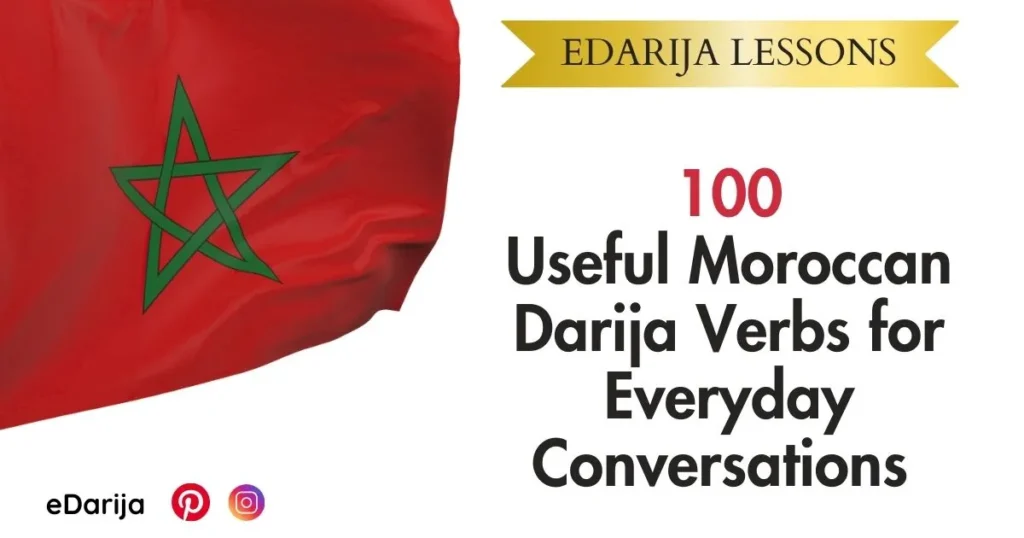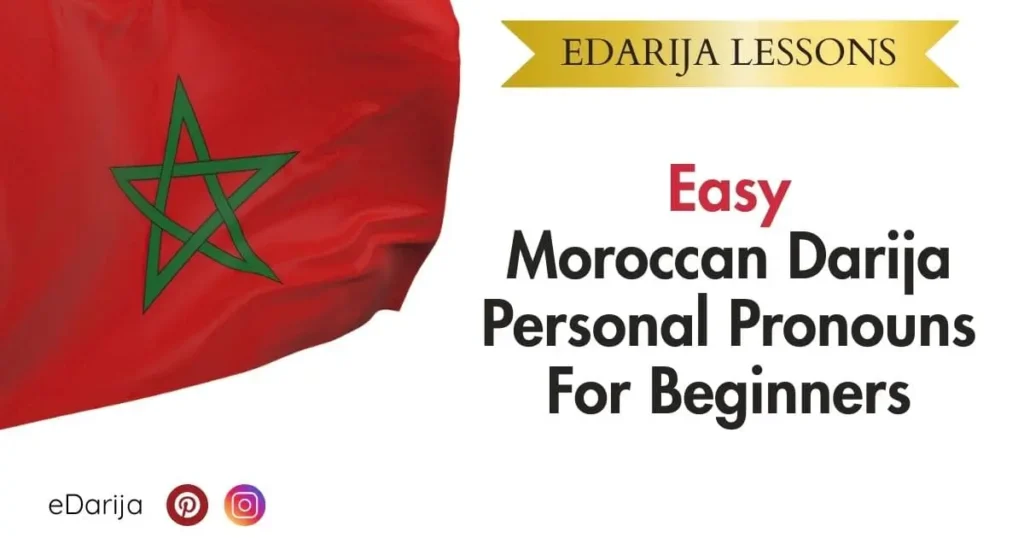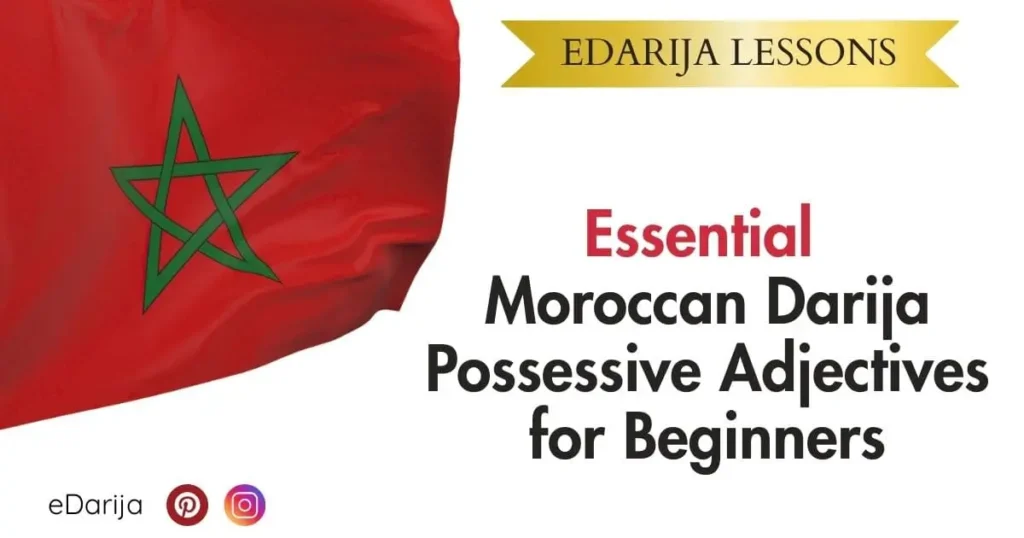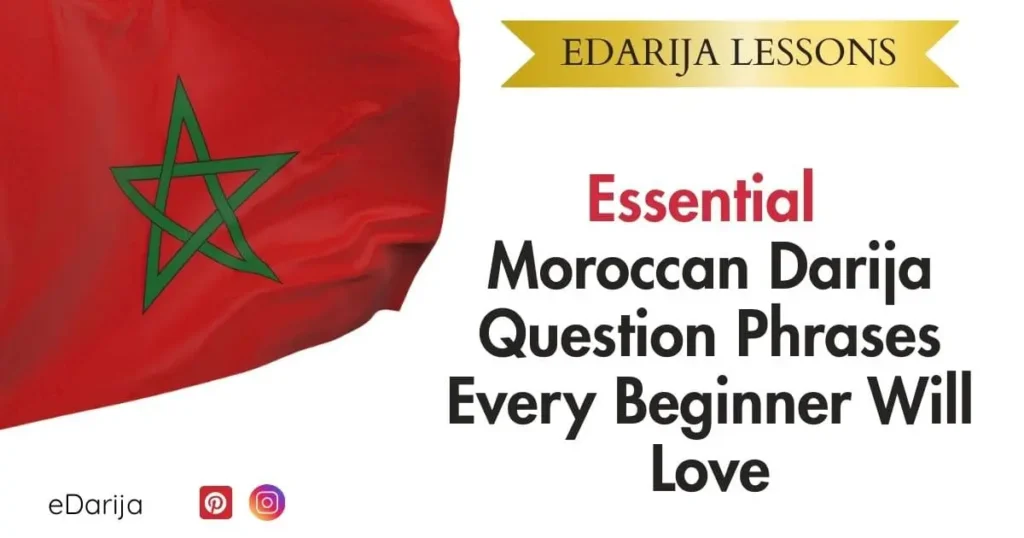
Learning Moroccan Darija verbs is the fastest way to start speaking. Verbs let you express actions, needs, feelings, and plans. Whether you want to learn Darija free with self-study materials or join structured learn moroccan courses, this course gives a clear, practical foundation. It is written for English speakers and learners of other languages who want simple steps and lots of real examples.
Introduction
When you study moroccan darija verbs, focus on patterns rather than memorizing single forms. Most verbs share a root and change predictably in the present, past, and future. Practice little by little and use the verbs in short sentences every day.
Pronouns refresher
Before conjugation, review the subject pronouns you will use:
ana = I
nta = you (male)
nti = you (female)
huwa = he
hiya = she
hna = we
ntuma = you (plural)
huma = they
Conjugation basics
Three tenses are most useful:
present = with ka- / kan- / kay- prefixes (I use kan for first person in examples)
Ex: Kan-nt3alem = I am learning
past = simple past forms with endings (it, iti, at, ina..)
Ex: Shrina = we bought
future = use ghadi before the verb, which is ghadi = will
Ex: they will start = Huma ghadi ybdaw
The full 100 verbs
The verbs are grouped so learners can study by theme. Each entry shows Darija transliteration followed by the English meaning.
Daily life Verbs
| English Verb | Moroccan Darija Verb |
|---|---|
| eat | Kla |
| drink | Shrab |
| sleep | n3as |
| wake up | faa9 |
| go | msha |
| come | ja |
| take | khda |
| give | 3ta |
| sit | Glass |
| stand | wqaf |
| open | 7all |
| close | sadd |
| wash | ghsal |
| cook | Tayab |
| clean | n9a |
| buy | shra |
| sell | ba3 |
| pay | Khallas |
| wait | Tsana |
| need | 7taj |
Communication Verbs
| English Verb | Moroccan Darija Verb |
|---|---|
| say | gal |
| speak | hdar |
| ask | sowel |
| answer | jaweb |
| listen | sma3 |
| call | 3ayet |
| write | kteb |
| read | qra |
| explain | fassar |
| understand | fham |
| repeat | 3awd |
| learn | t3allem |
| teach | 3allem |
| send | sifat |
| receive | tlaqa |
| translate | tarjam |
| describe | wsaf |
| inform | 3lam |
| communicate | twasal |
| tell | gol |
Movement and Actions
| English Verb | Moroccan Darija Verb |
|---|---|
| walk | mchi |
| run | jri |
| drive | soog |
| bring | jib |
| carry | Hazz |
| put | 7at |
| enter | dkhal |
| leave | khrej |
| return | rje3 |
| travel | safar |
| fly | Teer |
| move | 7rrek |
| fall | Ta7 |
| jump | na9ez |
| push | dfa3 |
| pull | Jarr |
| throw | Lou7 |
| catch | Shadd |
| climb | Tla3 |
Feelings and States
| English Verb | Moroccan Darija Verb |
|---|---|
| want | Bgha |
| like | 3jab |
| love | 7abb – Bgha |
| hate | krah |
| prefer | Faddel |
| be | koun |
| have | 3nd |
| feel | 7ass |
| think | Faker |
| know | 3raf |
| remember | Tfaker |
| forget | Nsa |
| believe | Tee9 |
| hope | Tmenna |
| need | 7taj |
| try | Jarrb |
| succeed | Nja7 |
| fail | S9at |
| wait | Tsena |
| worry | Htam |
Work and Study Verbs
| English Verb | Moroccan Darija Verb |
|---|---|
| work | khdem |
| study | 9ra |
| learn | t3lem |
| teach | 3lem |
| help | 3awn |
| start | bda |
| finish | sala |
| prepare | wjed |
| organize | naddem |
| plan | khatet |
| buy | shra |
| sell | ba3 |
| build | bna |
| repair | Sayeb |
| divide | qsam |
| operate | khdam |
| earn | ksab |
| decide | 9arar |
| choose | khtar |
| try (attempt) | jreb |
Notes on the list
Some verbs appear in more than one category because they are commonly used in many contexts. The transliteration uses numbers where appropriate for Arabic sounds: 3 represents Ayn and 7 represents the strong H sound, 9 represent Q . If you prefer a different transliteration system, you can adapt these roots to your style.
Conjugation practice with examples
Below are clear conjugations for five very useful verbs. I use spaced forms rather than hyphen connectors to keep the text clean.
Example 1: Kla = to eat
| Verb | Present | Past | Future |
|---|---|---|---|
| Kla (to eat) | ana kan-akol nta kat-akol nti kat-akli huwa kay-akol hiya kat-akol hna kan-aklu ntuma kat-aklu huma kay-aklu | ana klit nta kliti nti kliti huwa kla hiya klat hna klina ntuma klitu huma klaw | ana ghadi n-akol nta ghadi t-akol nti ghadi t-akli huwa ghadi y-akol hiya ghadi t-akol hna ghadi n-aklu ntuma ghadi t-aklu huma ghadi y-aklu |
Example 2: Shrab = to drink
| Verb | Present | Past | Future |
|---|---|---|---|
| shrab (to drink) | ana kan-shrab nta kat-shrab nti kat-shrbi huwa kay-shrab hiya kat-shrab hna kan-shrbu ntuma kat-shrbu huma kay-shrbu | ana shrbt nta shrbti nti shrbti huwa shrab hiya shrbat hna shrbna ntuma shrbtu huma shrbu | ana ghadi n-shrab nta ghadi t-shrab nti ghadi t-shrbi huwa ghadi y-shrab hiya ghadi t-shrab hna ghadi n-shrbu ntuma ghadi t-shrbu huma ghadi y-shrbu |
Example 3: msha = to go
| Verb | Present | Past | Future |
|---|---|---|---|
| msha (to go) | ana kan-mshi nta kat-mshi nti kat-mshi huwa kay-mshi hiya kat-mshi hna kan-mshu ntuma kat-ms huhuma kay-mshu | ana mshit nta mshiti nti mshiti huwa msha hiya mshat hna mshina ntuma mshitu huma mshu | ana ghadi n-mshi nta ghadi t-mshi nti ghadi t-mshi huwa ghadi y-mshi hiya ghadi t-mshi hna ghadi n-mshiw ntuma ghadi t-mshiw huma ghadi y-mshiw |
Using verbs in sentences
Short, daily sentences help lock patterns into memory.
ana kan shrab lma = I am drinking water
huwa msha l souk = he went to the market
hna ghadi naklu m3a s7ab = we will eat with friends
hiya shrat ktab = she bought a book
ana ktabt risala = I wrote a message
Conclusion
This course gives 100 useful moroccan darija verbs plus clear conjugation examples. Focus on a small group at a time, speak often, and review regularly. Traditional learning methods like repetition and sentence practice still work best, and a little forward-thinking use of audio and spaced repetition will make your progress steady and fast.
FAQs About Moroccan Darija Verbs
What are the most common Moroccan Darija verbs for daily conversation?
The most common Moroccan Darija verbs include eat (Kla), drink (shrab), go (msha), come (Ja), want (bgha), write (ktab), read (qra), and speak (hdar). These verbs are used daily and help you build practical sentences for real-life situations.
How can I learn Moroccan Darija verbs free online?
You can learn Moroccan Darija verbs free online by using language websites, YouTube tutorials, audio lessons, and free downloadable PDFs. Practicing with native speakers and daily conversation exercises helps reinforce learning.
How do I quickly memorize Moroccan Darija verbs for speaking?
To quickly memorize Moroccan Darija verbs, practice using flashcards, repeat sentences aloud, and focus on the most common verbs first. Pair verbs with real-life examples and daily activities to make learning faster and easier.




Pingback: 15 Funny Moroccan Slang Words You Won't Find in a Textbook
Pingback: 5 Easy Steps to Express Future in Moroccan Darija
Pingback: How To Negotiate Prices in Morocco Like a Local